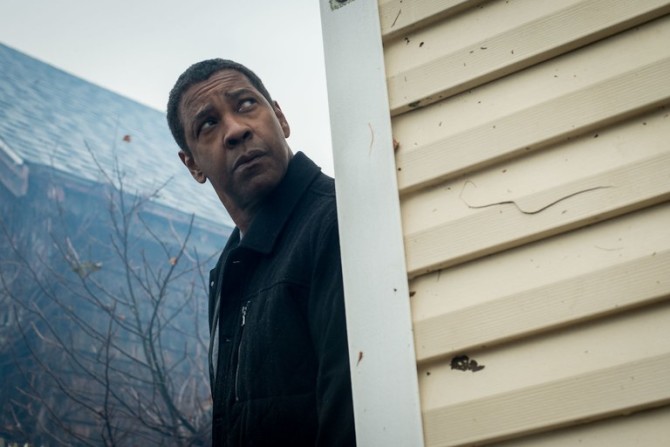Today I teach you how to avoid the thing that did me in as a screenwriter.
Genre: Crime/Murder
Premise: A jaded detective teams up with a young cocky LA county detective to solve a string of murders in Los Angeles.
About: This project just got announced the other day. John Lee Hancock has convinced Denzel Washington to sign on to his long gestating project, which he originally wrote in 1997, back when these murder detective stories were all the rage (“Seven” came out in 1995). Can the duo revitalize the sub-genre?
Writer: John Lee Hancock
Details: 145 pages!!! (1997 draft)
This week is “Hollywood Reality Week,” as it’s a reminder of just how long it takes to get movies made. Monday, we had a big budget movie that took 10 years to see the light of day and needed the help of distributor who wasn’t even around when the script was written. Yesterday, we saw how a small budget project took 10 years and an industry about-face regarding equal opportunity to get made. And for today, you have to add both those projects together to equal the number of years it’s taken for The Little Things to land a green light. Maybe the most under-appreciated quality in a writer isn’t talent, or voice, or skill. But patience. Which is ironic, because you’re gonna need a lot of patience to get through this script.
Joe Deacon, or “Deke,” as he’s known to friends, is a veteran LA cop who’s been assigned to solve a recent string of murders. He’s paired up with the active detective on the case, Baxter, a movie-star looks hotshot who doesn’t like the fact that he’s been assigned a professional looker-over-shoulderer.
Of the four girls who have been murdered, there are a few similarities. The girls all have bite marks on their faces. And, strangely, while all the food in their apartment has long since rotted, there are a few items – like milk – that are fresh. How could that be? Or maybe the bigger question should be, why would any writer think that was interesting?
Things heat up when a fifth woman, Ronda Rathman, disappears, forcing Deke to go rogue, following his gut on a scumbag named Sparma. He starts following Sparma around town, waiting for him to slip up, but it turns out Sparma is a crime nerd, and makes Deke easily. He even volunteers to come in and answer any questions the cops have, cockily pointing out there’s no way he can be the murderer.
This bravado throws Deke, who thought he could take this case to the bank. He must re-collaborate with Baxter, who’s increasingly annoyed by Deke’s low-key investigation methods (Deke’s convinced that every murder is about the little things, never the big ones). But the two are going to have to learn to work together to stop this guy because, otherwise, more women are going to get bitten. And then murdered.
Today I want to tackle a screenwriting question I think about all the time. Because, if I’m being honest, it’s the reason I believe I failed as a screenwriter myself. And that’s this practice of vanilla screenwriting. John Lee Hancock is one of, if not the most, vanilla working screenwriter in the business. The Blind Side doesn’t have a single risky beat in it. The Founder is almost painful in its plainness. He even took a great screenplay in Saving Mr. Banks and watered it down so much, that what was once prime rib, became a Happy Meal.
What is “vanilla screenwriting?” How do you avoid it? Should you even avoid it?
Vanilla screenwriting is a combination of cliches, safe choices, familiar plot beats, and characters without extremes. The vanilla screenwriter knows what works. So his scripts are never bad. But the vanilla screenwriter can never rise above average. Vanilla screenwriting is the equivalent of the “nice guy.” The nice guy is always going to listen to your problems. He’s going to cheer you up with a dad joke. He’s going to be there if your car breaks down on the side of the road. But the nice guy never excites you.
That slot is reserved for the dangerous guy. The dangerous guy is not going to listen to you. He’s going to cancel your coffee date at the last second without explaining why. He prefers offensive jokes over dad jokes. And he doesn’t care if you think they’re funny or not. In fact, he seems only mildly interested in your reaction to anything he does. You should hate this guy. And yet all you can do is think about him.
Maybe the best way to explain vanilla screenwriting is to compare this script to the movie it was inspired by, Seven, a film that had come out 2 years before Hancock wrote The Little Things. “Seven” has victims who have been forced to eat until their insides exploded. “The Little Things” has victims with bite marks on their faces. Which of these two choices is vanilla?
So why are there people like John Hancock who have careers? Or Ron Howard? Or Roberto Orci and Alex Kurtzman? The answer is simple. It’s because some people like vanilla. What a lot of industry folks forget is that the average person only goes to the movies a few times a year. So they don’t need big sexy plots. A less assuming – yet still well told – story will do the job.
But the problem with vanilla screenwriting is that it’s an impossible style to break in with. I don’t know how John Lee Hancock got into this business. But I would bet my left hand that if he were an unknown screenwriter trying to break in today he wouldn’t be able to. His scripts are soooooooo bland. Soooooo middle-of-the-road. You forget them almost seconds after you read them. You have no idea how hard writing that plot summary was. Even fifteen minutes after finishing the script, I was trying to remember what happened.
I mean you can see it in two of the most important elements of the screenplay – the title and the main character. The title is “The Little Things.” It’s actually telling you that it’s going to be a “little” story with “little” going on. And the main character’s name, “Joe Deacon,” sounds like an amalgam of every single protagonist name ever. I don’t know how you get more vanilla than that.
Unfortunately, all of this plays out in the script. The investigation in The Little Things is so standard I will guarantee that nobody who reads it will be able to locate a plot element or a character they haven’t seen in a prime time network procedural. It’s that dull. The one thing you have to do when writing in familiar waters is bring something new to the table. There’s nothing new here, guys. Not even a single line of dialogue I haven’t read before.
So why did Denzel sign onto this? I don’t know. It probably has something to do with the fact that once a director gets an actor an Oscar (Sandra Bullock won for The Blind Side), he’ll always be able to get movies made because actors will think he can do the same for them. That’s the only reason that makes sense to me because otherwise, I don’t see a single original component to this script. It’s so vanilla, you’re afraid it’s going to melt. Actually, “afraid” is the wrong word. Cause if it had melted, I wouldn’t have had to read it.
[ ] What the hell did I just read?
[x] wasn’t for me
[ ] worth the read
[ ] impressive
[ ] genius
What I learned: To avoid vanilla writing, get messy. I wasn’t the biggest fan of True Detective, but the last thing that script was was vanilla. It had a brutal imaginative first murder scene. It jumped around in time. And it had a main character who was a f%$#ing mess. That’s how you stay away from vanilla.



